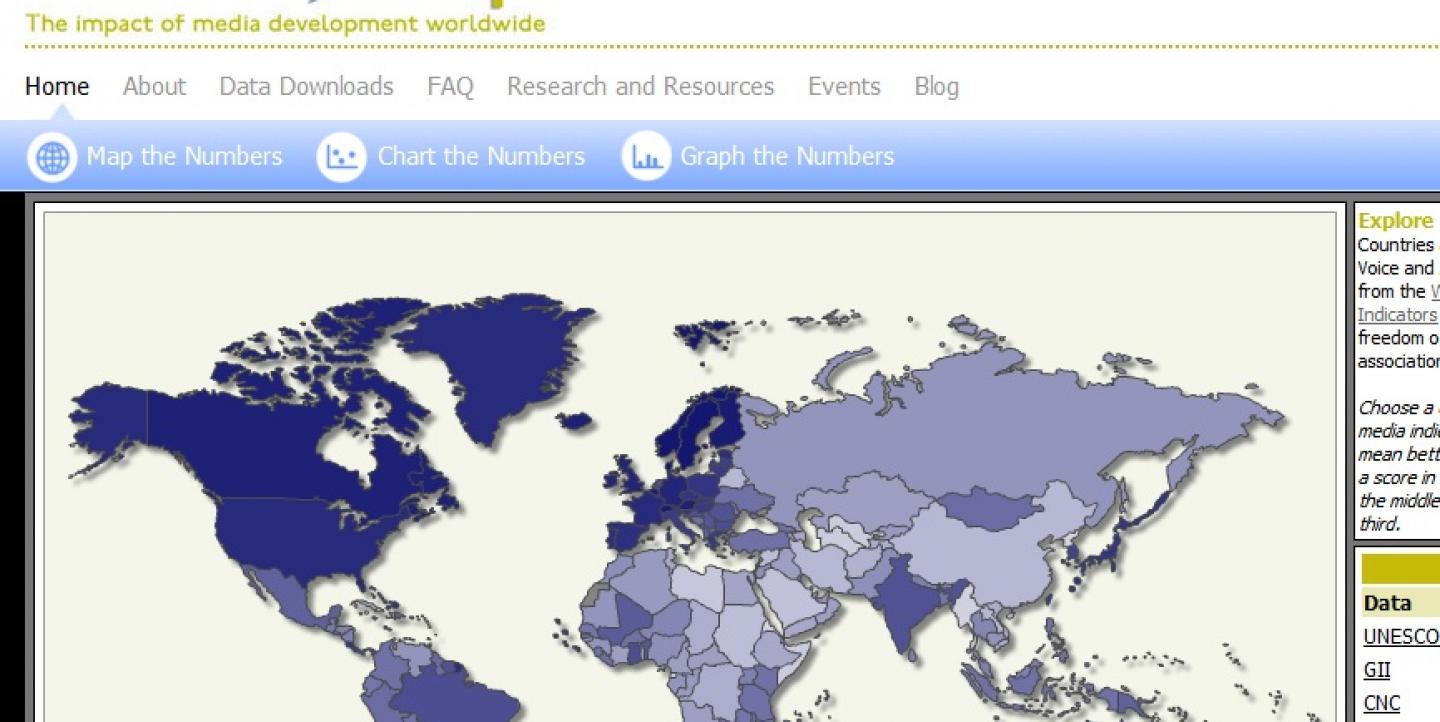In many countries, media development and media aid groups train journalists, launch reporting projects and help build media institutions.
Donors globally spend more than US$400 million per year on this work. What is its impact--and how could it be more effective?
A team from the World Bank and Internews, funded by the Bill and Melinda Gates Foundation, has spent the past two years trying to answer these questions and many more. Their Media Map Project examines the relationships between the media sector and economic development and governance, looks at donors’ roles and offers evidence to guide future decisions about media support.
They presented their findings and sparked a lively discussion at a recent event hosted by the Center for International Media Assistance in Washington, D.C. You can view the video of the event here.
Here are five ways panelists and attendees said donors and media development groups could make aid more effective:
1) Check out the research. A strong body of evidence shows that “if you have a healthy media sector, you have better development and you have better governance,” said Tara Susman-Peña, Media Map Project research director. Unfortunately, she says, there is not a good bridge between the research and policies, practice, donor strategy or country policy. “That’s a big link that still has to be made,” she says.
2) Stop working in silos. Too often, said Mark Nelson of the World Bank Institute, there is a disconnect between work on public sector reform, rule of law, and other areas and media development. Work toward these goals should be integrated, he said.
3) Seek out and develop local leadership. “One of the major problems in aid is that it’s often not led by the countries that are receiving the aid," Nelson said. Without ownership and leadership at the country level, it's difficult to see results and too few leaders argue the case for media development. “In the developing world, those voices are very weak and not really heard very often," he said.
4) Be selective about where you work. In countries lacking press freedom or good governance, media aid will be much less effective, says Brookings' Daniel Kaufmann, senior adviser to the Media Map Project. There, "it doesn’t make sense to be involved...unless it’s helping just certain groups with the technology to get around the major media censorship.”
5) Improve security training. “The international community spends hundreds of thousands of dollars per year on media development aid, but only a fraction of that goes toward security training for journalists,” said Committee to Protect Journalists adviser Frank Smyth, who was in the audience. “So essentially by providing aid, you’re encouraging journalists to become better journalists, which may make them become targets.”
How do you think media aid could be improved?


